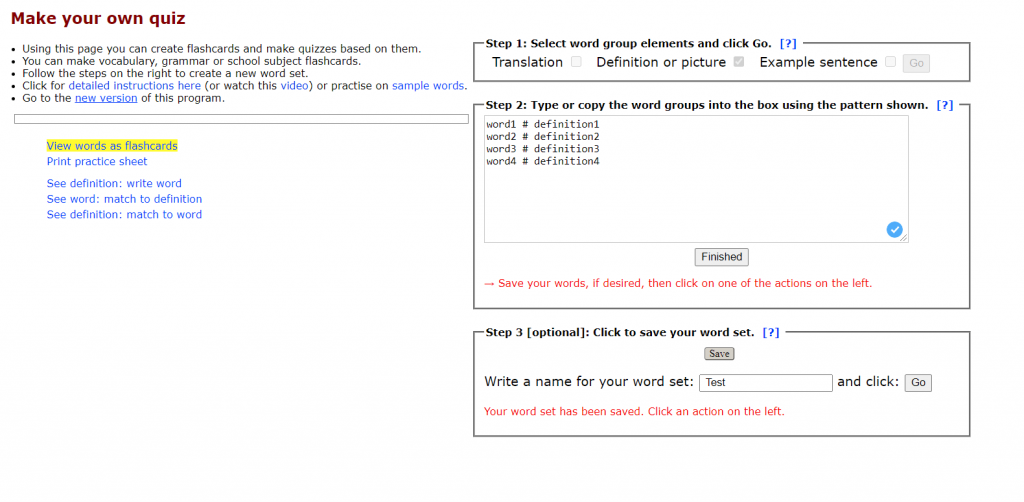We all reach a point when learning a new language where we feel that we are bad at pretty much all of it, we can’t understand, struggle to talk, we can’t comprehend what we read and our grammar seems to never get better. We just tend to let frustration rule the situation, and that’s the point where we just start to go downhill and feel tired of learning Spanish. A way to avoid this is to learn about where you need help (reading, writing, listening, and/or speaking), and use some of the strategies below to improve your Spanish.
We came up with this list to help you improve your Spanish speaking, writing, listening, and reading skills so that you can get in control of the situation again.
First, you need to know where you need to improve.
Check Out Our
Spanish Tutoring for Companies
1 – IDENTIFY WHAT THE PROBLEM IS:
You have to identify what’s not working or where you need to improve. What are your current challenges with Spanish?
2 – WORK WITH PATIENCE TOWARDS THE GOAL:
Don’t let frustration or mistakes put you down, keep walking towards your goal. Keep the learning process interactive and fun and once you identify your weaker points, work to get better.
3 – THERE ARE HUNDREDS OF WAYS TO IMPROVE SPANISH, AND IT DEPENDS ON WHAT WORKS BETTER FOR YOU:
You have many tools at your reach in order to improve. It’s always going to depend on what works the best for you and what you need help with.
Whatever the case is, that has to be your main focus in that moment, so dedicate most of your time for that.
Spanish Listening Practice Ideas:
Listen to Song Lyrics: You can read the lyrics of a song in Spanish while you listen to it, or listen to music while you’re doing your everyday routine that way your brain will start picking up those new sounds, and they’re not going to be so difficult because they’ll be familiar for you. We at Lingua Linkup like the website Lyrics Training, where you can practice listening to songs you like, and they will challenge you to write in the missing words from the lyrics on the screen. And so, you’ll learn your favorite songs, improve your listening skills, and at the same time increase your Spanish vocabulary and improve your writing in Spanish.
Did it ever happen that you hear a word and you find it familiar and easy to the ear but you don’t know why? And then you discover that it was part of a song they played on the radio all the time, well, it’s exactly like that.
Watching TV in Spanish: Another everyday thing to adapt could be to watch your favorite movies and series in Spanish with subtitles in your language or watching TV shows that you already know in their Spanish version.
Spanish Speaking Practice Ideas:
Online Language Partner: There are many things you can do for Spanish speaking practice. You can practice Spanish online with native speakers by finding them in many Facebook groups. Here you can find a partner for free to help each other and practice pronunciation and comprehension. You’ll help them with English while they help you with Spanish.
You can get a private Spanish tutor as well to help you practice your speaking skills and help you sound more natural and fluent, they will help you by teaching you connectors, extending your vocabulary, and giving you tips to be understood and have better pronunciation when talking.
Spanish Reading and Writing Practice
These two abilities are somewhat connected with one another, and they depend on each other.
Make a Spanish Phrasebook: Something that can make the difference is to create a phrase-book for yourself. Write down every new Spanish word you learn, and remember to add the accents where needed. This will help you remember this key component, which will later help you with your pronunciation. There are some phrase-books that you can get, but being something not personalized for your needs you’ll end up not using all the words in it in your daily life, and so it’s always better to create your own. Once you have been writing down your words for a number of months, you’ll have a large list that you can keep practicing with. If you add it online, you can categorize them.
Create Your Own Quiz: You can create your own quiz on this website once you’ve built up your phrasebook: Spanish Quiz Maker.

Hire a Private Spanish Tutor: If you prefer more professional help, you can get the help of a Spanish tutor. They will help you learn everyday phrases and words and give you homework that you can get graded. This allows you to work on the areas you need help in a more professional way, with guidance from an experienced Spanish tutor.
Some extra tips:
- You can also join chat groups on Facebook or HiNative where you can share your knowledge with other students and have conversations with native speakers, they can also correct your grammar and tell you how to improve.
- Have a native Spanish speaker review your phrasebook to make sure it is accurate. Translation apps, other people, and translations/sub-titles aren’t always correct. So that is why it is good to have support in your Spanish journey.
- Having a dictionary that translates Spanish to your native language and vice versa is also a great idea to extend your vocabulary. You could opt for a small pocket-sized dictionary to carry with you, or just use the Google Translate app on your phone, and then you can learn new words on the go, but still add them to your phrasebook later. That way every time you see something and want to know the translation you have it there with you, and you can start improving your reading, which a big part of is increasing your Spanish vocabulary. **Keep in mind, not everything from Google Translate is going to be 100% accurate, especially from a context standpoint. So as mentioned above, see if you can get your list proofread. You can also use a tool like LanguageTool to review your phrases online. See our review of the Spanish proofreading app here.
- Don’t let the fear or shame of having a mistake have an impact in your learning process, we all commit mistakes in order to learn, so get the most of every tool and tutoring class. If you feel ashamed of talking or saying you didn’t comprehend a phrase or conversation focus on that instead, practice it, and let that be your main subject until you don’t feel that fear or shame. Having a tutor can help greatly in these kinds of situations, you can practice your listening and talking skills, and they can identify and help you improve the mistakes you need to improve on.
- And last but not least, the more you add the language to your everyday life the easier and more natural it becomes for you and the less you struggle. Try to think about daily things in Spanish, when you’re talking or seeing something imagine how that should be said in Spanish, try to make your everyday conversations in your mind in Spanish instead.
About the Author:

Specializations: Spanish Tutors on Zoom
Bio: 28-year-old graphic designer and writer with 7 years of experience, passionate about communication in all its aspects as the main tool to forge links. I consider myself a detailed, patient, and empathetic person, so even if you consider yourself a difficult student, I will know how to guide you to reach the level of Spanish you need for whatever activity you have in mind. As a student of Literature, I always had the same love for books and their stories, as well as for the Spanish language and its formation. I believe that the best way to learn is to be passionate about what you are learning and that is what I always want to achieve with my students. I have worked with children, adolescents, and adults, so I have knowledge about the different learning stages that a person can go through and the different strategies to approach them.
View my Profile to Book a Private Spanish Lesson
Other articles: Spanish For Law Enforcement, Spanish Phrases For Hotel Staff, Spanish For Legal Professionals, English for Childcare Workers, Spanish & English Vocabulary for Painters


